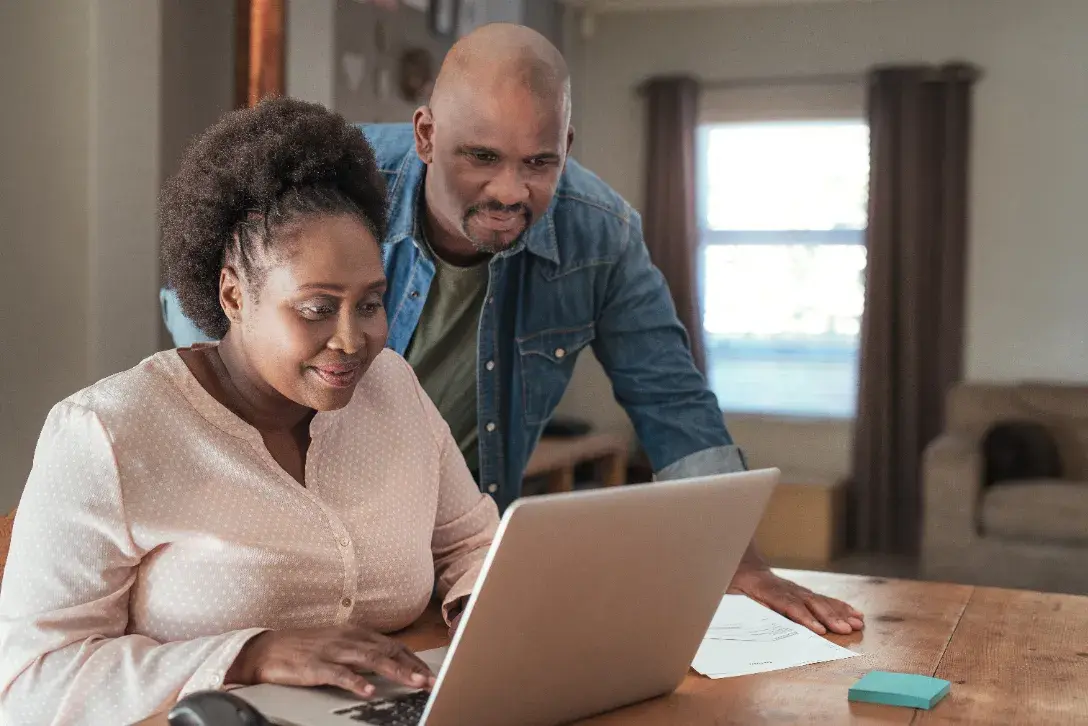Key Takeaways and Learnings
- Nearly five years after its founding, Acclinate’s success shows there’s value in the company’s mission to improve diversity in clinical research.
- Co-Founder Tiffany Whitlow was recently named a Top 250 Female Founder by Inc., and this spring the company secured $7 million in Series A funding.
- Collaborations with organizations ranging from Merck to Lightship reflect a growing industry commitment to make research more equitable.
- Read examples of health equity in action from Acclinate partners who met their community engagement and patient screening goals quickly and effectively.
Del Smith, Ph.D., and Tiffany Whitlow founded Acclinate in early 2020 with a clear mission of advancing health equity. While knowing this is an evident need across the healthcare and life science landscape, they focused on clinical research and embarked on a two-pronged strategy— combining sustained engagement with communities of color and predictive analytics to help sponsors identify diverse targets for trial participation.
Amid unprecedented and unpredictable challenges—from the COVID-19 pandemic to political unrest to economic uncertainty—our company has reached multiple milestones in the last five years. In May, Acclinate secured $7 million in Series A funding to fuel further expansion and make healthcare more accessible to all. The investment comes on the heels of Acclinate’s collaboration with industry leader Merck to enroll more Black American patients in trials of oncology drugs—along with notable awards, key industry partnerships, and value creation for Acclinate users.
This post provides a closer look at what motivates Smith and Whitlow, how their efforts have been recognized, and what Acclinate partners have been able to accomplish with e-DICT™ and NOWINCLUDED. It’s a testament to the hard work of everyone on the Acclinate team and their commitment to our mission.
A leadership team laser-focused on advancing health equity
Acclinate’s Co-Founders have very personal reasons for striving for more equitable clinical research, patient recruitment, and medical treatment.
Researching his family history many years ago, Smith learned the men on his father’s side often died of cancer before turning 50. He’s hoping to break the cycle—not just for himself, but for all individual in communities of color, where average life expectancy is several years shorter than in White communities.
Shortly after Whitlow gave birth to her son, he was diagnosed with asthma. Doctors prescribed albuterol. It’s a common treatment, but one with a demonstrated diminished response in individuals of African American and Puerto Rican descent. It took Whitlow and her care team far too long to find an alternative.
Together, Smith and Whitlow realized minority groups with higher propensities for diabetes, cardiovascular disease, and other chronic conditions were underrepresented in drug development processes. What’s more, when individuals were asked to participate in research, it happened on a transactional level. There was little regard for medicine’s legacy of unethical behavior and exploitation in communities of color, and there was too little effort to build trust.
With Acclinate, Smith and Whitlow seek to develop innovative solutions to connect trial sponsors with engaged communities of color—while advancing health equity through more diverse participant cohorts.
An award-winning approach to innovation in clinical research and patient recruitment
Acclinate supports health equity initiatives with e-DICT™, an AI-supported analytics platform that reports on community engagement and offers insight into clinical trial participants, and NOWINCLUDED, a digital and in-person community platform.
Many industry stakeholders have recognized the value of our “tech and touch” approach to outreach, engagement, and community-building over the last five years.
- Earlier this year, Acclinate made the Inc. 5000. Whitlow was named a Top 250 Female Founder.
- Recently, NOWINCLUDED won Silver at the Anthem Awards, highlighting Acclinate’s commitment to diversity, equity, and inclusion in community engagement.
- In 2022, Acclinate won DPHARM Idol Disrupt at the organization’s event focused on innovations in clinical research. Judges described Acclinate as “a high-value solution” that’s “both timely and relevant,” given FDA diversity action plan guidance.
- In 2021, Acclinate was part of the Cox Enterprises Social Impact Accelerator class. In this Techstars program, we were one of 10 startups committed to addressing inequity in healthcare, civic engagement, investment, and the legal system.
Beyond these awards, Acclinate has signed partnerships with mission-driven organizations such as Alabama Regional Medical Services, Egality Science, Lightship, Savvy Cooperative, and Trialbee. Collaborating with organizations that are equally committed to advancing health equity helps Acclinate bring more research to traditionally underrepresented communities.
It’s worth noting the recognition goes both ways. Last year, Acclinate established the NOW Award to celebrate community leaders who serve as catalysts for change in their communities. We presented the award to Jasmine Leonard, an emerging leader and health equity champion at CareFirst Blue Cross Blue Shield. Among other accomplishments, Leonard initiated a pediatric patient-centered medical home for the D.C.-area insurer and led an educational series on medical mistreatment of Black women.
Technology and community powering health equity initiatives that get results
These accolades show how much leaders in healthcare, life science, and entrepreneurship see the value of Acclinate. Our partners see the value, too: Acclinate’s examples of health equity outcomes in action illustrate the real-world impact possible with e-DICT™ and NOWINCLUDED.
- A nearly 4x increase in individuals screened for an Alzheimer’s disease drug trial and a 2x increase in individuals interested in participating
- A 42% increase in screening for participants in an organic infant formula trial in just 60 days
- A maternal health community of more than 18,000 individuals, 45% of whom are willing to participate in clinical research
- Enrollment of nearly one-third of all non-White potential participants screened for an RSV vaccine trial
Paving the way for more equitable healthcare
At Acclinate, we’re proud of what we’ve accomplished in the last five years—and we’re confident that it’s only the beginning. Smith, Whitlow, the rest of the Acclinate team, and our trusted partners remain committed to advancing health equity and ensuring clinical research brings benefits to communities of color.
Ready to explore how Acclinate can help your organization advance its health equity goals? To see Acclinate in action, schedule a 1:1 meeting with our team.









.webp)




